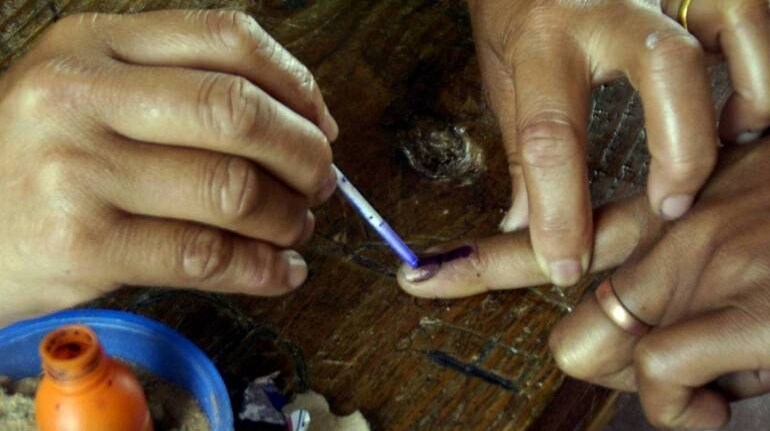



Democracy as we know it is one of the newest forms of governance in the world. In fact, before World War II, only a small minority of the countries in the world were fully democratic.
But as with any other form of governance, democracy is not fool proof and certainly comes with its fair share of flaws and shortcomings. This has made many a skeptic wonder what lies in the future of democracy.
But dashing these concerns of the future of democracy in the world, a new survey conducted by the Pew Research Center suggests that around 6 in 10 countries are now democratic.
The survey, which was conducted earlier this year in 38 countries, revealed that the number of democratic nations in the world right now is at a post-World War II high.
At the end of 2016, 97 out of 167 countries (58 percent) with a population of at least five lakh each were democracies. Around 21 of these 167 countries (13 percent) were autocracies, while the rest were either not rated or were a mix of democracies and autocracies (around 26 percent).
India continues to have a 'democratic' government according to the survey.
How the trend reversed
The Pew Research Center survey revealed that the number of democracies in the world has been broadly on an upward trend since the mid-1970s. In 1976, as many as 62 percent of the countries were considered authoritarian, while the percentage of democracies was a mere 24 percent.
The aftermath of World War II saw numerous authoritarian governments come up across the world and this trend had continued till the mid-1970s.
The survey also stated that the number of democratic governments rose particularly steeply after the Soviet Union collapsed between 1989 and 1991.
Between 1976 and 2016, Russia (formerly the Soviet Union) has moved from being 'authoritarian' to having a 'mixed' government. On the other hand, Turkey, which was 'democratic' in 1976, has been marked as having a 'mixed' government in 2016.
However, one should also bear in mind that the term 'democracy' has become lately become ambiguous in various parts of the world.
In November, Robert Mugabe, who served as Zimbabwe's President for three decades, was ousted following a coup. While Mugabe was elected democratically over multiple terms, international observers have called the elections rigged and his reign autocratic. Despite having a 'democratically' elected government, the country has been marked as having a 'mixed' government in both 1976 and 2016.
Similarly, in Venezuela, the incumbent President Nicolas Maduro has been elected through an established process. However, opposition parties and international observers have often spoken about the opposition being suppressed in the country.
On Sunday, Maduro announced that the chief opposition parties will be barred from contesting next year's presidential elections. As a result, Venezuela was marked as having a 'mixed' government in 2016, as compared to the 'democratic' tag it got in 1976.
A country's internal tensions are also reflected on the country's overall rating in the survey. Following the 2007 parliamentary election in Belgium, the European nation dropped two points as a result of the deepened divisions between the country’s French- and Flemish-speaking communities.
The United States influence
Following the Second World War, the United States played a key role in widening democracy in Western Europe and elsewhere in the world.
During the Cold War, the United States followed the Truman Doctrine introduced by President Harry Truman. The doctrine implied American support for countries that that were being threatened by Soviet communism and authoritarian regimes.
The US pushed for the North Atlantic Treaty Organisation (NATO), which proved to be a defensive wall for Italy, West Germany, Portugal and Spain, which in turn helped them become democracies. The US also played an instrumental role in the unification of Germany.
America also facilitated land reforms in El Salvador, which were unpopular among the ruling elite, and uprooted General Augusto Pinochet as Chile’s leader. Some of America's other successes include pushing Taiwan, South Korea, and the Philippines towards becoming stable democracies. South Korea turned from being an authoritarian state under dictator Park Chung-hee, to being fully democratic.
The Truman doctrine also had its failures in places such as Vietnam, a country that remains 'authoritarian' to this day, according to the survey.
On the other hand, there have been numerous cases around the world where the United States seems to have played a part in getting a dictator to power, although any hardcore proof of this has never really surfaced. Nonetheless, the US openly supports as many as 30 autocratic nations across the world.
Formerly rated '+10' for its democratic government, US dropped two points this year after last year's "polarized political competition", according to the survey.
Charting the trend
The Pew Research Center survey is based on the Center for Systemic Peace’s Polity IV dataset or simply, the 'Polity Score', to analyse and code how political authority is gained and used in fully independent nations with a population of five lakh or more.
The ratings have been marked on the basis of six key factors, from openness of political participation to constraints on the chief executive. Each country is marked on a 21-point scale ranging from +10 ('consolidated democracy') to –10 ('hereditary monarchy').
Discover the latest Business News, Sensex, and Nifty updates. Obtain Personal Finance insights, tax queries, and expert opinions on Moneycontrol or download the Moneycontrol App to stay updated!
Find the best of Al News in one place, specially curated for you every weekend.
Stay on top of the latest tech trends and biggest startup news.